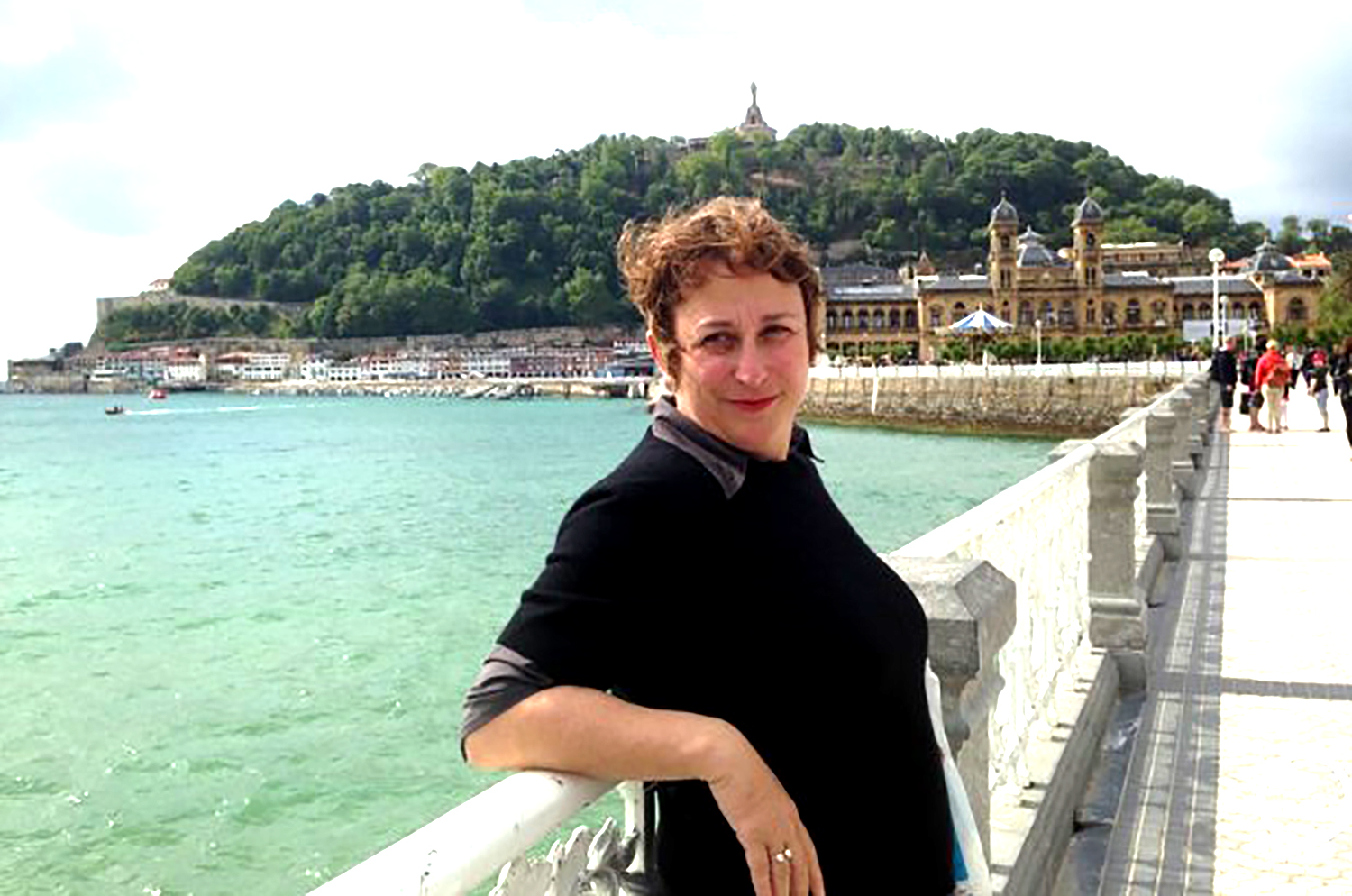
- A group of professors from the CAV has created the Meeting Point of the Professors of Artistic Education. They want to denounce the "drift" of educational policies, arguing that they are based on new continuous methodologies, on a "tremendous bureaucracy" and on the "absurd use" of ICT. ARGIA spoke to the professor of the group Tere Maldonado.

Who are you behind Educational Art?
We're just over 30 professors, most of the ESO, but there are also some HH, LH and college professors. Most of us do it in public, although we target all teachers. We are professors of the C.A.P.V. And later, we'll probably try to get in touch with the teaching staff of Navarra.
“We are constantly trained in new methodologies without scientific evidence,” you say. Are you driving innovation without a North from the administration?
It's entirely without a north. Continuous innovation seems to be good in itself, as the Basque Government does; I use the word “innovation”. They insist on the need to promote critical thinking in students, they have created a new lesson with this pompom name, but then they are not able to critically analyze their activity. On the contrary, they have created a new language, which is purely doctrinal and which is used in an uncritical manner. What we say is that new methodologies can be good or bad, as can older methodologies. And methodologies are not the only important key in education, we think we need to re-value the importance of content, to value what we have to teach. With the new methodologies our students are learning less than ever, it is very serious and we have to change it. The lack of direction is terrible: competences, teaching through projects (because working through areas is not guaranteeing interdisciplinarity, as we are seeing), gamification… Representing all the time is a mistake, sometimes it is learning and living is a game, sometimes it is learning in silence, being focused on personal work… and learning and understanding something is a great pleasure. But there's always one last fashion, because the wheel can't stop spinning, and there's a lot of interest in it.
In the name of free and autonomous circulation, for example, the walls have begun to be demolished, but if it goes out of fashion tomorrow, what? The question is: Why does pedagogy not give any importance to the didactics of each subject? It would bring to the fore the importance of the content I have mentioned above and the experience and experience accumulated by the teaching staff for years. But many of the chiringuitos that have emerged as a result of innovation would run out of sources of income.
"We believe that we have to re-value the importance of content, to value what we have to teach"
In this circle of innovation, new technologies play an important role. You are critical of the use of ICT.
It is becoming increasingly clear that the wonderful promise to introduce all these devices into the learning process is fraud. These technologies often do not help in the learning process and are an obstacle when it comes to focusing the attention of students. ICTs are one more tool, but we have to recover the notebooks, the habit of writing by hand. Fortunately, families are organizing around this issue and Altxa Burua is an example of this.
“Reports, questionnaires, incomprehensible didactic programs that are not feasible…”, you say that among teachers the burn syndrome is widespread. Where do the forces stand and where should they be placed?
The abuse is enormous; it would appear that it is the job of the political leaders to obstruct our activity to the fullest. Our job is to teach, including all the activities that comprise: explaining, clarifying doubts, helping students, making reflections, making visible the different aspects of a problem, directing, evaluating… and for this we consider it is our obligation to do programming and writing reports, but what is happening lately is unbearable, that most of our activity has to be devoted to the totally sterile bureaucracy. We must program precisely millimetrically (but the programations are a guide, a tool, not a goal) when evaluating equally… Even, beyond the lessons, if there is any problem with issues related to coexistence or discipline, the administration will be quiet if we leave in Excel or in the PDF file a lot of reports hanging, and it is not our obligation: to solve the problem and then to realize what we have done, but not in a normal way. Who benefits? It doesn't make sense. We need time to prepare the classes, update them, adapt them, correct them… and the need to fill in so many forms makes our task difficult.
"Our job is to teach, including all the activities that it involves: explaining, solving doubts, helping the student, making reflections, directing, preparing classes… The need to fill in so many forms makes our task difficult"
We shall shortly be publishing the manifesto. And then?
Our ultimate goal would be to curb the drift of educational policies and to facilitate reasonable policies by educational institutions, facilitating our work. That they guarantee a public and quality education for all, leaving aside the pedagogical rhetoric and advertising language of the world. We relate the main problems we denounce with the commodification and privatization of education. For the time being, we want to make the debate public and to make the teachers' tiredness known. We know that there are many teachers who think like us, tired of seeing how many obstacles they encounter in their daily work, who want to raise their voice. We encourage them to join us.